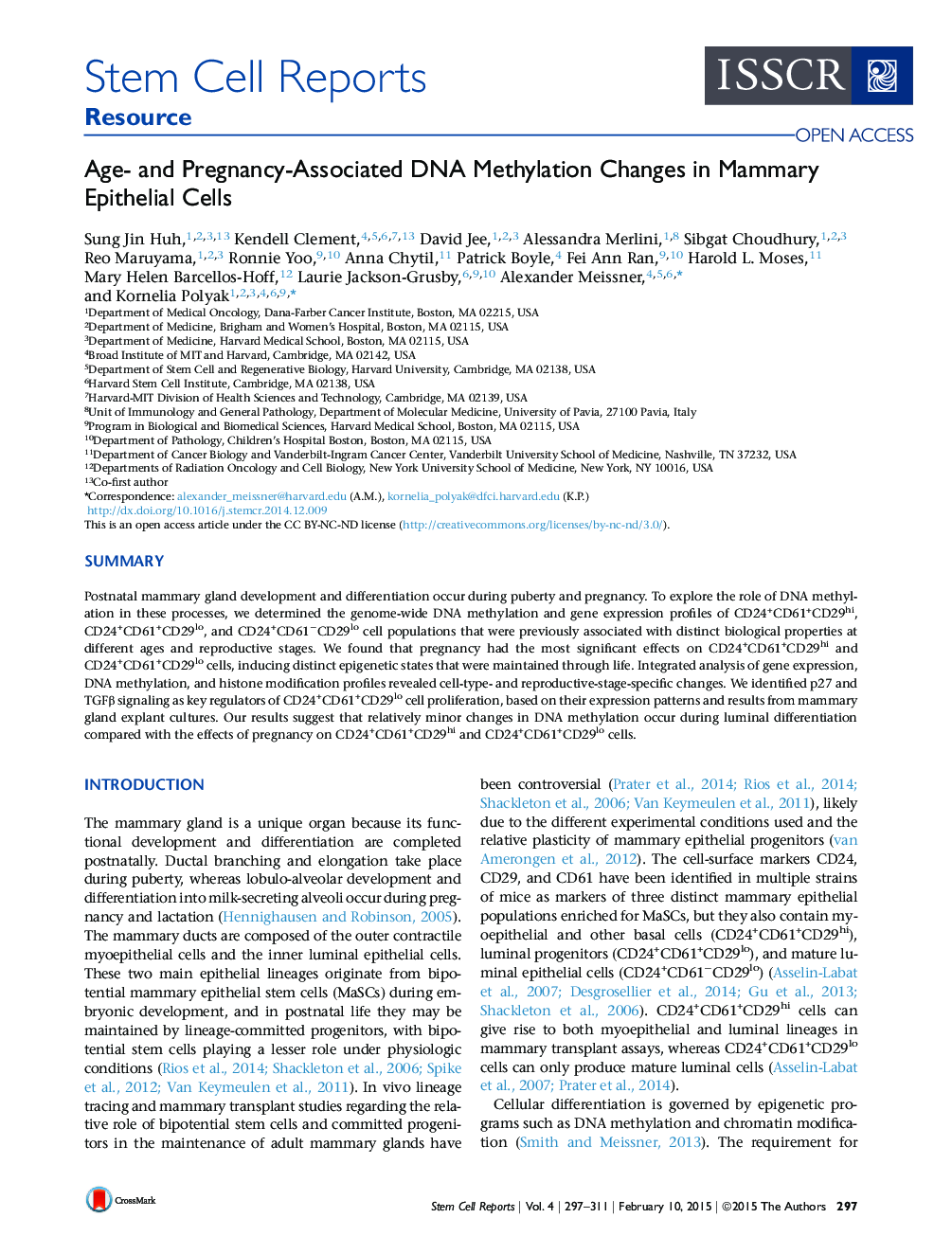| Article ID | Journal | Published Year | Pages | File Type |
|---|---|---|---|---|
| 2093566 | Stem Cell Reports | 2015 | 15 Pages |
•Molecular profile changes are cell-type, age, and reproductive-stage specific in mammary gland•Pregnancy induces DNA methylation changes in CD24+CD61+CD29hi cells•The frequency of p27+ cells with progenitor features is lower in retired breeders•p27 and TGFβ signaling are key regulators of CD24+CD61+CD29lo cells
SummaryPostnatal mammary gland development and differentiation occur during puberty and pregnancy. To explore the role of DNA methylation in these processes, we determined the genome-wide DNA methylation and gene expression profiles of CD24+CD61+CD29hi, CD24+CD61+CD29lo, and CD24+CD61−CD29lo cell populations that were previously associated with distinct biological properties at different ages and reproductive stages. We found that pregnancy had the most significant effects on CD24+CD61+CD29hi and CD24+CD61+CD29lo cells, inducing distinct epigenetic states that were maintained through life. Integrated analysis of gene expression, DNA methylation, and histone modification profiles revealed cell-type- and reproductive-stage-specific changes. We identified p27 and TGFβ signaling as key regulators of CD24+CD61+CD29lo cell proliferation, based on their expression patterns and results from mammary gland explant cultures. Our results suggest that relatively minor changes in DNA methylation occur during luminal differentiation compared with the effects of pregnancy on CD24+CD61+CD29hi and CD24+CD61+CD29lo cells.
Graphical AbstractFigure optionsDownload full-size imageDownload as PowerPoint slide
